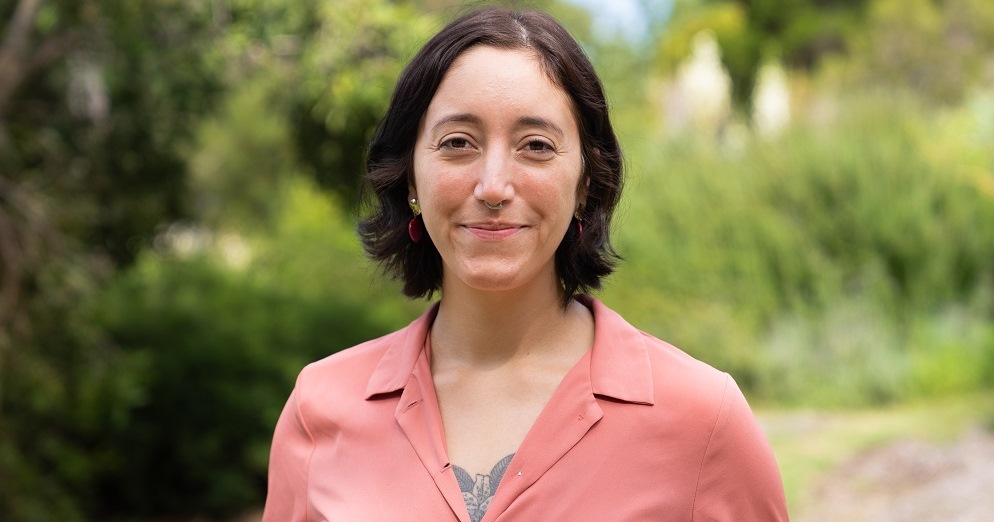By Annelies Gartner
Driven by a desire to ensure good quality, healthy food reaches people’s tables Dr Monica Danilevicz is supporting farmers and crop breeders to make better-informed decisions.
“I deeply care about the food we eat; it is important to me to have access to abundant grains and veggies, and I am also concerned about climate change and its impact on food security,” Dr Danilevicz says.
Dr Danilevicz is a plant biologist and data scientist from Brazil who is interested in precision agriculture, machine learning and crops.
Throughout her PhD and now as postdoctoral researcher, she explores the use of machine learning models to analyse plant images collected by drones and ground vehicles to optimise the development of crop varieties.

Image: Associate Professor Guy Curtis, School of Psychological Science.
“There are multiple factors that influence crop performance in the field, from the genetic make-up of the individual plant to environmental factors during development,” she says.
“I work with deep learning models, which is a part of AI, to integrate various datasets including images, weather, crop management and genomic variation data for crop prediction.
“The use of multiple datasets provides more detailed modelling which helps to better understand the conditions plants will be subjected to.”
The results from the research provide insights for crop breeders about which varieties are going to perform better under the studied conditions, supporting the identification of climate-resilient crop varieties and can increase food security globally.
In addition, the models can guide decision-making in farms, ensuring efficient use of limited resources such as fertilisers and pesticides and potentially lead to a decrease in the final cost of producing food.
“One of our projects in collaboration with the Australian Herbicide Resistance Initiative in UWA focused on weed detection; enabling farmers to geolocate weeds growing in the field for targeted management,” she explains.
“This allowed farmers to treat just regions with weed infestation instead of spraying herbicides across the entire area, so farmers can protect the crop yield while reducing herbicide usage in the field.
“We want to be able to offer farmers healthier and cheaper solutions to manage their crops.”
Dr Danilevicz, a former Forrest Research Foundation scholar, plans to stay in Australia and focus on agricultural-based crops to continue to help plant breeders and farmers future-proof the production of healthy food.
Read the full issue of the Winter 2024 edition of Uniview [Accessible PDF 12MB]
